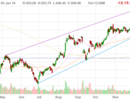Binary Options Trading
Binary options are perhaps the simplest available investment tool available to enable the trader to take advantage of changes in the prices financial assets traded in global markets. But potential traders should be wary and make sure that they fully understand the concept of this increasingly popular market, namely that in addition to offering the opportunity to rake in extraordinary profits, binary options require handling with care. The all or nothing principle can easily leave the trader with empty pockets.
Binary options are very different from traditional options. Firstly traders do not in fact buy anything. What they actually do is to speculate on the movement of a chosen asset. Binary options can only be traded by way of a broker, and different brokers offer their own terms regarding payouts, brokerage charges and the risk involve as well as more intricate basic dif9ferences. So it is of utmost importance for the trader to know precisely what is on offer before making the choice of broker.
Binary options were regarded with skepticism by financial concerns but in 2008 they gained recognition as valid instruments by the Chicago Board Options Exchange. They had already been traded for many years under the name of Over the Counter (OTC). They have now gained acceptance on many stock exchanges both in the USA and other countries.
Defined as exotic, binary options are also known as fixed-return options because when the contract is taken out, the amount of the initial investment is known, as well as the possible outcomes, either win or lose, and the defined time for the transaction. If the trader makes the right prediction, either up or down, he will end up in the money. It does not matter how much the chosen asset rises or drops; all that counts is the movement. If the trader predicts incorrectly he ends up out of the money.
For example, in a bullish market, our trader takes out a call option predicting that his chosen asset will rise in price within the specified expiry time, say 60 seconds. The only thing which matters is that at the time of expiry the asset is greater than the strike price. If the trader predicts that the asset will go down, he takes out a put option. The same rules apply only this time the trader will end in the money if his asset is below the strike price at expiry. There are no unknowns. As soon as the trade is made the strike price, expiry time and payout are all fixed. Pay out varies according to the risk involved and different brokers may offer better chances for profit.
So traders should take into consideration both the advantages and pitfalls. Making reasonable predictions based on following the market while taking care not to spend more than $200 on each call or put gives the trader a good chance of ending in the money. Remember, success depends solely on the movement of the asset. The amount of potential profit is exact and known in advance. Another good point is that there are no costs involved in taking out contracts and no commissions to be paid to the broker. Yet another advantage is that trade can be made at any time with a variety of assets in markets over the world.
Of course, it is not all milk and honey. Binary options brokers are not out there to satisfy the traders’ desire to get rich. They make their money from trades. The profit of the trader will always be less than the risk, which means that he has to make a high percentage of correct predictions in order to stay in the money. Losing trades involves more money than the trader can gain when he makes the right prediction. For more information visit http://whatsbinaryoptions.com

